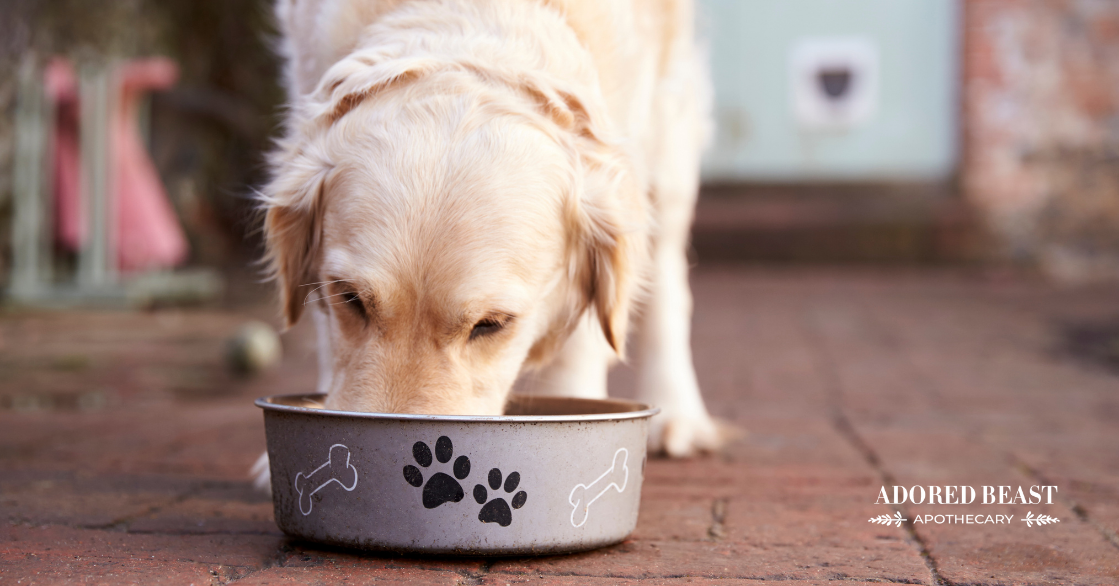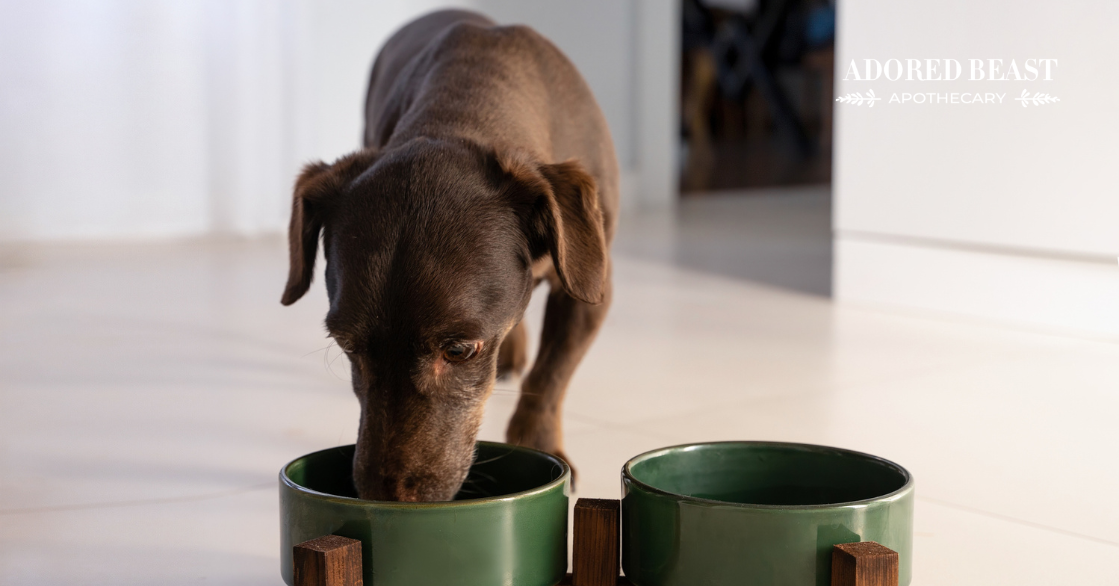Have you ever really thought about what happens when your dog eats? Like really thought about it? The process from initial ingestion all the way through to poop? Maybe, but maybe not.
One of the most important elements of the digestive process is the role of digestive enzymes. Your pet needs these to make the food you feed worth it. Without digestive enzymes, that food isn’t delivering the nutrients you want it to!
So, what are digestive enzymes for dogs, and could your animal benefit from the addition of them to their food bowl?
What are Digestive Enzymes?
In a nutshell, digestive enzymes are compounds that aid digestion. They break down food, allowing your pet to gain nutrition from their food.
When your dog or cat chews and eats food, the very act of chewing starts the digestive process. Chewing (or swallowing for those gulpers out there) triggers the release of digestive enzymes, which follow the food from the mouth, into the stomach, and through the intestines.
There are 3 different types of digestive enzymes: proteases (for proteins), lipases (for fats), and amylases (for carbohydrates). Protein, fat, and carbohydrates are the three macronutrients that make up all foods.
When they’re born, dogs get their digestive enzymes from their mother’s milk. Once they’re old enough to be weaned off, they start making their own. They can also get them from certain foods.
And sure, most animals make their own digestive enzymes (if they didn’t, they wouldn’t survive), but that doesn’t mean they’re getting enough! Not by a long shot. Let’s talk about why…
The Benefits for Digestive Enzymes for Dogs
For dogs with digestive issues, digestive enzymes can be incredibly helpful. This is particularly true with conditions like Exocrine Pancreatic Insufficiency (EPI). EPI is actually a disease where dogs cannot make their own digestive enzymes. Dogs with EPI are unable to gain weight despite a big appetite and have loose or greasy stool or diarrhea. If you suspect your dog has EPI, a visit to your holistic vet is your first step.
EPI isn’t the only issue. Animals with chronic pancreatitis, leaky gut, IBD, allergies, arthritis, any gut issue really, can all be good candidates for additional enzyme support!
But it isn’t just animals with health concerns that benefit…
Even healthy pets can use digestive enzymes! Often this is necessary because digestive enzymes are lost through the process of cooking. The heat essentially kills them. So, if your animal eats processed kibble or even home cooked food, the amount of viable digestive enzymes are significantly decreased in that food.
But even raw fed dogs can benefit. Well-balanced, species-appropriate raw food is much better, but things like vaccines, pharmaceutical drugs, even fluoridated water can all impact your dog’s ability to produce enzymes naturally. Also, if your raw food doesn’t have the beneficial organs (ex. the pancreas, gallbladder, glands in the intestinal wall) an animal would find in whole prey, they could be lacking!
Additionally, as your pet ages, the body produces fewer enzymes naturally. Over time, this builds up to create an enzyme deficiency, and often the body just can’t keep up.
By giving your animal the power to effectively break down macronutrients, you’re giving them the power to absorb and use those nutrients! You can feed the best food on the planet, but if your dog or cat can’t actually access them, they’re not doing the intended job. By increasing the effectiveness of the digestive process, digestive enzymes help take all those valuable nutrients from food and let your pet use them as fuel for health and longevity.
Where to Find Them
There are several ways to increase digestive enzymes in the body. Feeding enzyme-rich foods can help build up the stores in your pet’s body. These include:
- Fermented vegetables
- Kefir
- Certain fruits – kiwi, papaya, banana, mango, pineapple
- Apple cider vinegar
- Ginger
- Raw honey
- Organ meat
Try rotating these into the diet. A few pieces of fruit a few times a week, a tablespoon of kefir every other day, or a teaspoon of apple cider vinegar (for a medium-large dog) in their food twice a week, will encourage the production of digestive enzymes.
A high-quality digestive enzyme supplement like our Healthy Gut will also add those missing enzymes to the diet. This is an easy way to ensure that your animal is getting enough, on a regular basis. It’s also helpful for pickier eaters! Our Healthy Gut contains highly effective enzymes such as papain, pancreatin, betaine, and bromelain, as well as a multi-strain probiotic blend and prebiotic larch to give the gut a super boost.
Whether your animal has a digestive issue that directly effects enzyme production, they have the occasional loose stool, they eat kibble or cooked food, or you just want to make sure that they’re able to get all the nutrients they can from their food, digestive enzymes for dogs can be a really important part of a healthy diet.












